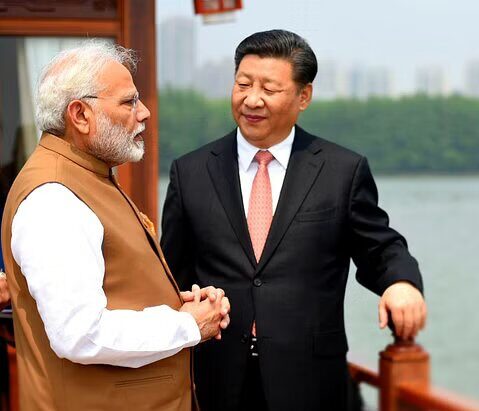By – Shubhendra Singh Rajawat
The meeting between Prime Minister Modi and President Xi could not be described as a “consensus.”
NEW DELHI : India said on Thursday that Prime Minister Narendra Modi and President Xi Jinping discussed the need to stabilize bilateral ties during a brief meeting on the margins of last year’s G20 Summit in Indonesia, a departure from an earlier description of the meeting as just an exchange of courtesy.
Three days after a statement from the Chinese foreign ministry claimed Modi and Xi had “reached an important consensus on stabilizing China-India relations,” the external affairs ministry’s spokesperson Arindam Bagchi commented on the meeting between the two leaders at a dinner hosted by the Indonesian president on November 16, 2022.
“During the Bali G20 Summit last year, Prime Minister and President Xi Jinping, at the conclusion of the dinner hosted by the Indonesian president, exchanged courtesies and spoke of the need to stabilise our bilateral relations,” Bagchi said in answer to inquiries at a routine media briefing.
He made reference to the military standoff between India and China in the Ladakh sector, saying, “As you are aware, we have steadfastly maintained that the key to resolution of this whole issue is to resolve the situation along the LAC (Line of Actual Control) on the eastern sector of the India-China boundary and to restore peace and tranquility in the border areas.

Bagchi additional admitted that foreign secretary Vinay Kwatra had simply mentioned exchanging courtesies during a media briefing held in Bali, Indonesia, following the G20 Summit the previous year.
“I will only say that Prime Minister Modi and President Xi Jinping, who were both attending the G20 dinner…hosted by the Indonesian President, exchanged courtesies at the conclusion of the dinner,” Kwatra said at the briefing in Bali.
According to a readout by the Chinese foreign ministry on a meeting between National Security Advisor (NSA) Ajit Doval and his Chinese counterpart Wang Yi in Johannesburg on July 24, Xi and Modi reached a “important consensus” on stabilizing bilateral ties during their interaction on the sidelines of the G20 Summit in Bali.
The readout said that “specific policies” and “concerted actions” should be implemented to strengthen strategic mutual trust in order to implement the consensus on stabilizing bilateral relations. This primarily supports Beijing’s argument that the military standoff on the LAC should be moved to a more “appropriate place” while the two nations advance their relations in other domains, like trade.
India has previously rejected this strategy, with external affairs minister S. Jaishankar adamant that normalizing bilateral ties cannot take place until there is calm and quiet along the border. Additionally, he said that China started the impasse by disobeying border control agreements and norms.
People with knowledge of the situation claim that there was no “consensus” reached during the two leaders’ talk, and that the only topic covered was the necessity of stabilizing bilateral relations.
Doval made it clear during his discussion with Wang that the standoff on the LAC has “eroded strategic trust” and that peace and quiet in border areas are important for normal ties.
The border debate, as well as a horrible meet at Galwan Valley in June 2020 that killed 20 Indian soldiers and at least four Chinese troops, have brought India-China relations to their lowest point in six decades. Despite more than two dozen rounds of diplomatic and military discussions, the two parties have unable to resolve key issues of contention in the Ladakh sector.

